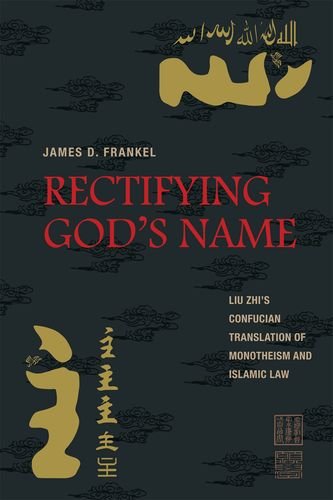

Most ebook files are in PDF format, so you can easily read them using various software such as Foxit Reader or directly on the Google Chrome browser.
Some ebook files are released by publishers in other formats such as .awz, .mobi, .epub, .fb2, etc. You may need to install specific software to read these formats on mobile/PC, such as Calibre.
Please read the tutorial at this link: https://ebookbell.com/faq
We offer FREE conversion to the popular formats you request; however, this may take some time. Therefore, right after payment, please email us, and we will try to provide the service as quickly as possible.
For some exceptional file formats or broken links (if any), please refrain from opening any disputes. Instead, email us first, and we will try to assist within a maximum of 6 hours.
EbookBell Team

4.8
34 reviewsIslam first arrived in China more than 1,200 years ago, but for more than a millennium it was perceived as a foreign presence. The restoration of native Chinese rule by the Ming dynasty (1368–1644), after nearly a century of Mongol domination, helped transform Chinese intellectual discourse on ideological, social, political, religious, and ethnic identity. This led to the creation of a burgeoning network of Sinicized Muslim scholars who wrote about Islam in classical Chinese and developed a body of literature known as the Han Kitab. Rectifying God’s Name examines the life and work of one of the most important of the Qing Chinese Muslim literati, Liu Zhi (ca. 1660–ca. 1730), and places his writings in their historical, cultural, social, and religio-philosophical context. His Tianfang danli (Ritual law of Islam) represents the most systematic and sophisticated attempt within the Han Kitab corpus to harmonize Islam with Chinese thought.
The volume begins by situating Liu Zhi in the historical development of the Chinese Muslim intellectual tradition, examining his sources and influences as well as his legacy. Delving into the contents of Liu Zhi’s work, it focuses on his use of specific Chinese terms and concepts, their origins and meanings in Chinese thought, and their correspondence to Islamic principles. A close examination of the Tianfang dianli reveals Liu Zhi’s specific usage of the concept of Ritual as a common foundation of both Confucian morality and social order and Islamic piety. The challenge of expressing such concepts in a context devoid of any clear monotheistic principle tested the limits of his scholarship and linguistic finesse. Liu Zhi's theological discussion in the Tianfang dianli engages not only the ancient Confucian tradition, but also Daoism, Buddhism, and even non-Chinese traditions. His methodology reveals an erudite and cosmopolitan scholar who synthesized diverse influences, from Sufism to Neo-Confucianism, and possibly even Jesuit and Jewish sources, into a body of work that was both steeped in tradition and, yet, exceedingly original, epitomizing the phenomenon of Chinese Muslim simultaneity.
A compelling and multidimensional study, Rectifying God’s Name will be eagerly welcomed by interested readers of Chinese and Islamic religious and social history, as well as students and scholars of comparative religion.